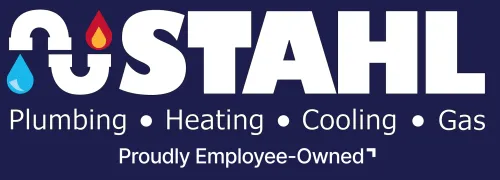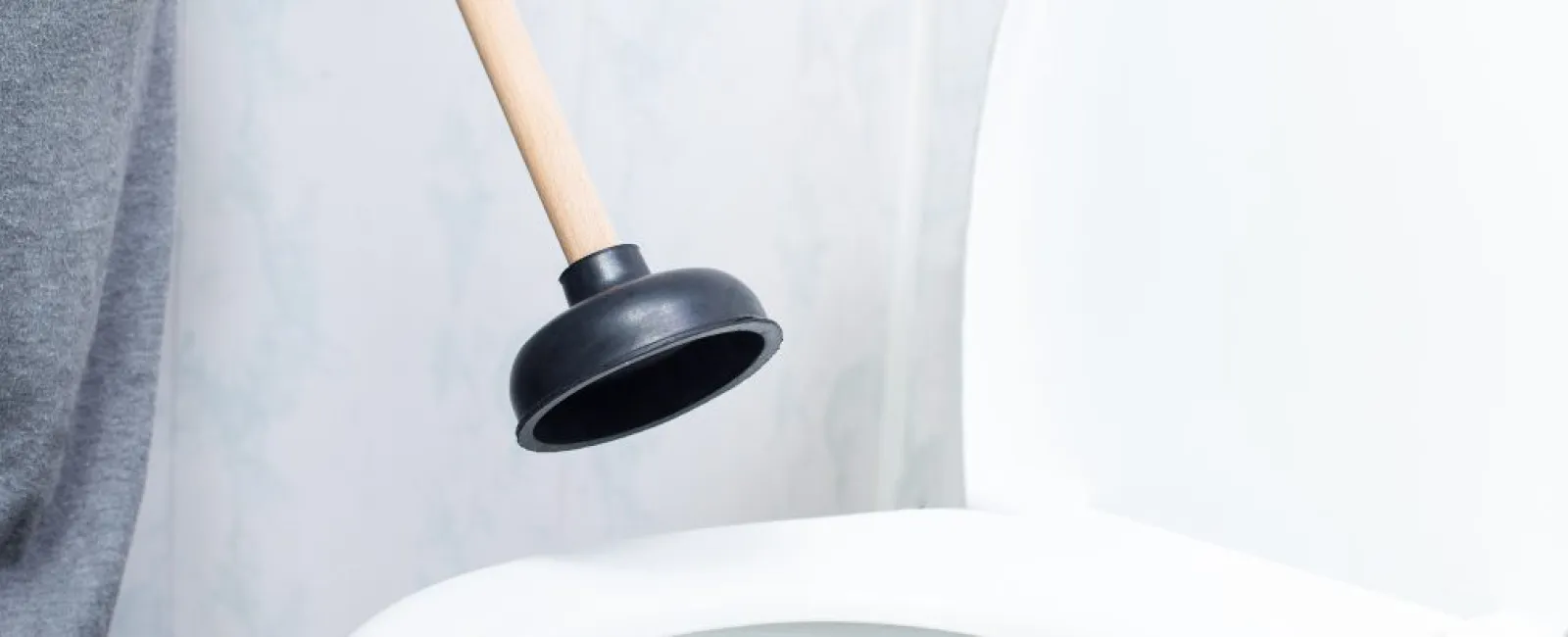Dealing with a clogged toilet is basically a rite of passage for any adult tasked with trouble-shooting their own plumbing problems. These clogs are inevitable, but they can also be a huge problem if the clog doesn't resolve itself quickly—and especially if that toilet is the only option in your home.
When your toilet won't flush, you're probably in urgent need of help to restore that plumbing fixture to proper working order. If you've had the misfortune of dealing with a number of clogs over a short period of time, you might have a bigger plumbing issue that needs to be addressed, including a partial blockage in the drain line, or a structural issue with the toilet itself.
Toilet Not Flushing: Potential Causes
If you're dealing with a clogged toilet, the most likely cause is one of the following:
- A blockage in the toilet. Solid waste, toilet paper, or other debris flushed down the toilet can get clogged in the fixture and block the flow of wastewater into your plumbing.
- A clogged S-trap. The S-trap, which is located past the opening where wastewater exits the bowl of the toilet, is notorious for getting clogged as waste travels through its narrow, winding passage. Like a blockage close to the bowl of the toilet, a plunger can be an effective tool to free this trap.
- A blocked plumbing vent. Air vents are essential to creating airflow that supports the flushing of a toilet. When this vent is blocked—which can occur from outside debris or even an animal—it can result in gurgling water when flushed, and even create an appearance that the toilet is at least partially clogged.
- Water flow issues in your toilet or plumbing. Insufficient filling of the water tank, as well as poor water flow when flushed, can prevent the toilet from fully flushing, in effect creating an obstruction.
It's also possible that a toilet clog is related to a clog in the sewer drain itself, although you may notice other signs of a clog beyond the toilet itself.
Home Solutions to Unclog a Toilet
When a toilet is stopped up, residents may often be able to fix the clog on their own. It's always worth trying some of these basic interventions before calling in a plumber for help. These home remedies include the following:
- Trying to flush the toilet again. In some cases, a water flow issue or partial clog can be remedied simply by flushing the toilet. Just make sure you don't attempt to flush it again if water has already backed up into the toilet bowl, otherwise, you could cause the toilet to overflow.
- Removing the clog with a plunger. A plunger is a highly effective tool for removing most clogs. It creates a seal around the connection between the bowl and the plumbing and uses force to dislodge the clog.
- Use a toilet snake to forcibly break up the clog. If you have a toilet snake, it's worth running it through your toilet's plumbing to see if this will remove the clog. A toilet snake is similar to the type of tool a plumber will use, although a non-professional may struggle to effectively remove a clog with this device.
How to Turn Off the Water if the Toilet is Overflowing
If the toilet is backing up and the bowl is filling from water, you may be at risk of having the toilet overflow. This is particularly risky if the toilet water continues to run as the clog persists, giving you only seconds to take action before water starts to spill out of the toilet and onto the floor.
In this situation, your top priority needs to be stopping the flow of water to avoid a mess on your floor—which can lead to serious damage and a dirty mess in your bathroom. You can avoid this by going behind the toilet and turning the water intake knobs all the way to the right to close them. This will shut off the flow of water into the toilet water tank, which will stop the toilet from overflowing—giving you time to call a plumber before any damage is done to your home.
What to Do is the Toilet is Clogged and the Plunger is Not Working
If your toilet won't unclog after you've tried basic at-home remedies, it's time to call in a professional. A local plumber will have the tools and experience to quickly diagnose the problem with your toilet and free up any clog to restore the toilet to proper working order.
In some cases, a toilet may be affected by a buildup of deposits that have narrowed the plumbing over time, increasing the right of a clog and making it likely that future clogs will occur. If a plumber identifies this issue, you may need to replace the toilet entirely, which may alleviate your problems of chronic toilet clogging.
When in doubt, it's never worth your time to attempt to fix plumbing issues on your own. A trusted local plumber is an investment in the proper functioning of your toilet and your entire plumbing system, and it will get your toilet up and running fast, and without added mess.

